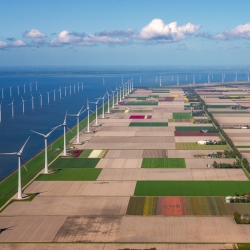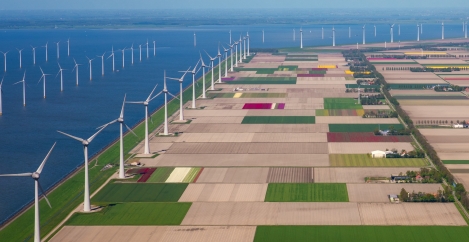November 26, 2020
Leading universities lag behind on sustainability teaching, research claims
 Research conducted by EIT InnoEnergy, sustainable energy accelerator, claims that the world’s top ten universities including the University of Cambridge and Harvard University offer, on average, 2.8 courses focusing on sustainability and energy. This is compared to a global average of 5.6, as the accelerator calls for a more robust and comprehensive decarbonisation outlook by all major education players.
Research conducted by EIT InnoEnergy, sustainable energy accelerator, claims that the world’s top ten universities including the University of Cambridge and Harvard University offer, on average, 2.8 courses focusing on sustainability and energy. This is compared to a global average of 5.6, as the accelerator calls for a more robust and comprehensive decarbonisation outlook by all major education players.
The research considered the standalone sustainable educational output of 27 leading institutions across Europe, the US, Asia and Latin America, with a focus on institutions ranked highly by The Times Higher Education 2020 report and feeder schools to EIT InnoEnergy’s postgraduate degrees.
The output highlighted limited sustainability courses (under 1 percent) at the University of Oxford (ranked 1st) and Harvard University (7th). The University of Cambridge (3rd) is marginally higher at 1.21 percent. However, this is significantly less than the likes of institutions such as Universidade de São Paulo, which falls outside of the top 200 Times ranked institutions, but has a greater concentration (7 percent) of courses teaching specific sustainable energy skills.
There is clear disparity globally – with more than 6 percent of all programs taught in Latin America providing a sustainability focus, compared to around 1 percent in Europe and Asia. Younger institutions are also offering a greater number of courses with a sustainability focus. Shanghai Jiao Tong University is the global leader with 11 sustainability programmes, but this expands when you consider some degrees can be taken in both English and Chinese creating wider accessibility.
[perfectpullquote align=”right” bordertop=”false” cite=”” link=”” color=”” class=”” size=””]”Sustainability should be a primary concern, not an optional module in broader courses.”[/perfectpullquote]
Out of all 124 sustainability-related courses identified in the research, 51 percent focus on the areas of the environment including course such as management or engineering. Within this broad topic, modules typically focus on managing or controlling areas like air pollution and water quality, rather than equipping students to solve these issues. In-depth, specialist topics such as smart cities, renewables and wind make up only 2 percent of all energy and sustainability-related degrees.
A recent study by EIT InnoEnergy further highlights that the gap between education and industry is widening. The survey of more than 200 members of EIT InnoEnergy’s ecosystem of industrial partners, innovation projects and start-ups found that energy storage, energy efficiency and renewable energy skills are in highest demand. This is in stark contrast to the education research which shows only one degree available for renewable energy and wind.
EIT InnoEnergy Education Director, Prof.Dr.ir. Frank Gielen said: “While we recognise the value of general engineering degrees in supporting the sustainable energy cause, there is a widening gap between the specific, in-depth skills needs of industry and what higher education institutions are offering. It is not only energy businesses that have a role to play in accelerating the energy transition. We, as a society, are all responsible. We need to overhaul the current university ranking system to have a positive impact on the energy transition and our climate – with both courses offered and sustainability approaches carried out by the universities. Sustainability should be a primary concern, not an optional module in broader courses.”
The full research can be found here.
Image:EIT InnoEnergy















